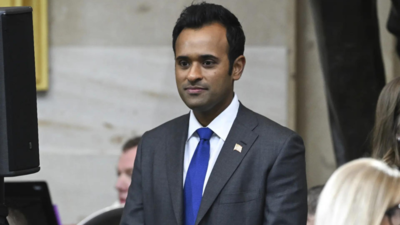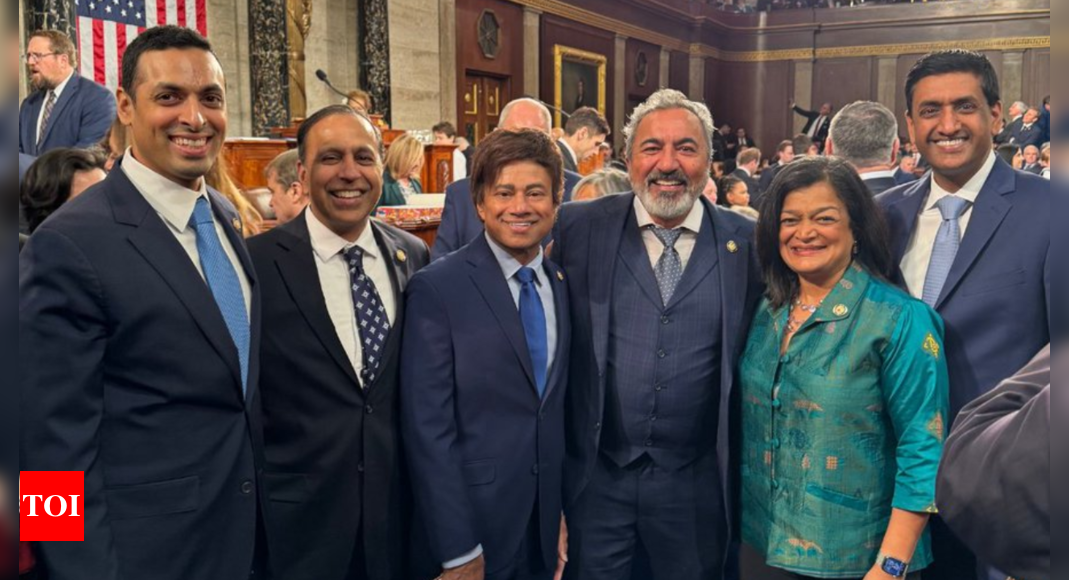In January 2024, Vivek Ramaswamy, the son of Indian immigrant parents from Kerala, dropped out of the race for the Republican presidential nomination and endorsed President Donald Trump. And now, in January 2025, he has exited from his role as co-leader of the department of government efficiency, which he had helped create, to streamline US government; after Trump won the presidential election last November.
Even as Ramaswamy, 39, has hinted at running for elected office in Ohio as his future plan; many analysts feel that he has been eased out because of friction with billionaire businessman Elon Musk, who is now in full control of DOGE. Many Indian-Americans believe that the exit of Ramaswamy from the high profile role in the Trump government is a setback for the community. While President Trump had himself tapped the biotech entrepreneur from Ohio to co-lead DOGE with Musk; his exit was officially announced by a spokesperson for the agency Anna Kelly, who said in a statement “Vivek Ramaswamy played a critical role in helping us create DOGE. He intends to run for elected office soon, which requires him to remain outside of DOGE.”
Ramaswamy is expected to announce his campaign for Ohio governor as early as next week and if elected in November 2026, he will be the third Indian-American governor of a state in the US after Republicans Nikki Haley, governor of South Carolina from 2011 to 2017, and Bobby Jindal, governor of Louisiana from 2008 to 2016.
Sanjeev Joshipura, Washington DC based executive director of Indiaspora, a non-profit organisation of global Indian origin leaders, feels that running for Governor of Ohio and being actively involved in DOGE leadership are both demanding and important roles and it is understandable that Ramaswamy does not have the bandwidth to do both simultaneously. “Based on his presidential campaign, one senses that he will remain a prominent player in the American political firmament. I know many Indian-Americans, among others, look up to him as an inspiration,” Joshipura told the Times of India.
Ramaswamy’s campaign rhetoric, as a candidate in the 2024 Republican Party presidential primaries, of ‘put merit back’ and end dependence on China had stuck a chord with young Americans and he had fared well in opinion polls before dropping out of the race.
If elected as governor of the state, Ramaswamy will be the fourth high-profile elected Indian American in Ohio. Republican Niraj Antani, who was first elected to the Ohio House of Representatives in 2014, became one of the youngest state lawmakers in the US at 23. Antani, whose parents immigrated to the US in 1978, won four state elections in Ohio and was state senator from January 2021 to December 2024. He lost the Republican primary to the US House of Representatives for Ohio’s 2nd Congressional district in March 2024.
Antani was the second Indian-American and Hindu-American member of the Ohio state house after Jay Goyal, a Democrat, who was a member for three terms from 2007 to 2013. The first Indian-American in the Ohio state legislature, Goyal, who is president of Goyal Industries, a metal manufacturing firm in Ohio, served as the majority whip in the House.
Recently, Goyal attended the signing ceremony for a Bill designating October as Hindu Heritage Month in Ohio. The Bill was sponsored by Antani when he was state senator. October 2025 will mark the inaugural celebration of Hindu Heritage Month in Ohio.
At present, physician and Democrat Anita Somani is the only Indian-American in an elected position in Ohio. She was first elected state House representative in November 2022 and re-elected in November 2024.




